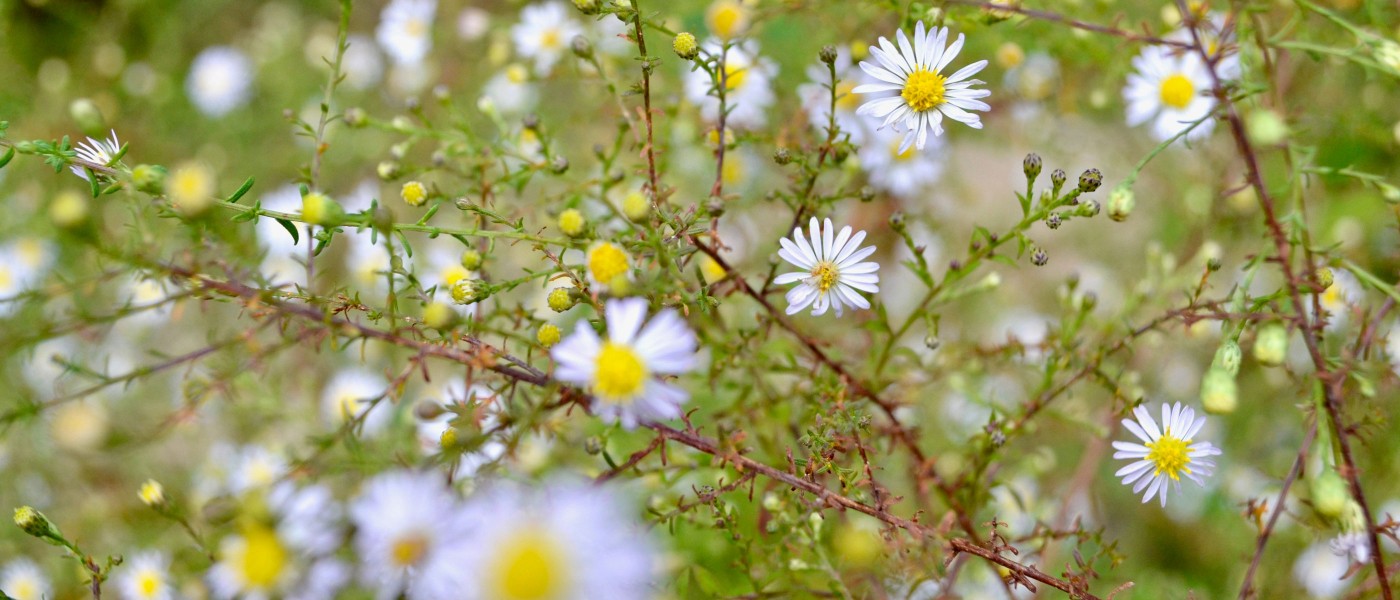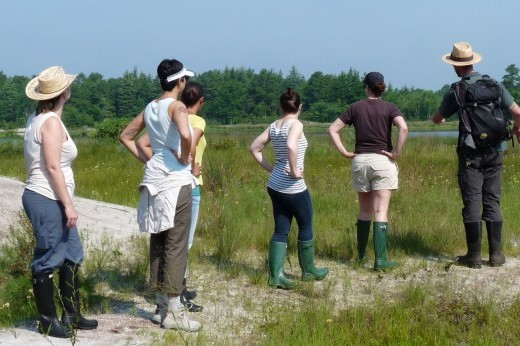Topics
Special Series
Ecological Gardening
-
A Children’s Garden of Wildflowers
Favorite native perennials in the Discovery Garden.
By Ashley Gamell -
Greenest Block in Brooklyn 2011 Winners
The winners of the Greenest Block in Brooklyn 2011 contest have been announced!
By BBG Staff -
Wild Seed Hunters
Uli Lorimer leads a group of BBG staff through the Pine Barrens in search of an elusive plant.
By Lauren Deutsch -
BUGs Go Places
After a successful training program last fall, the very first class of certified Brooklyn Urban Gardeners (BUGs) is making a difference to community greening efforts throughout Brooklyn.
By Nina Browne -
How to Get a Lush Lawn
Looking to green your lawn the natural way? Join us for an informative workshop on sustainable lawn-care techniques on Tuesday, May 17, from 6 to 8 p.m.
By BBG Staff -
Trouble in Paradise: Are We Losing Our Native Bees?
On Wednesday, May 4 at 6:30 p.m. join the Torrey Botanical Society and Dr. Stephen Buchmann for a free illustrated talk showcasing North American native bee diversity and the threats facing bees and other pollinators.
By BBG Staff -
Save Your Vegetable Seeds
Saving seeds is a global effort of immense importance. But home gardeners should also institute this practice—not so much as an insurance policy against floods, famine, or doomsday, but as a way to save natural resources and money, and as a means to become more in tune with the life of the garden.
By Medi Blum -
Day Five of the Dougherty Installation
With the scaffolding now in place and volunteers working through the weekend and Monday, the Patrick Dougherty installation is starting to take shape.
By Rebecca Bullene -
Urban Beekeeping
Urban beekeeping is on the rise in the U.S., powered by such trends as the local food movement and the spread of inner-city community gardens.
By Jent LaPalm -
Give Bees a Chance—The Mystery of Colony Collapse Disorder
In the United States, managed honey bees pollinate more than 100 commercial crops, including cherries, blueberries, tomatoes, cucumbers, peppers, coffee, and almonds. And these bees are dying.
By Jent LaPalm



